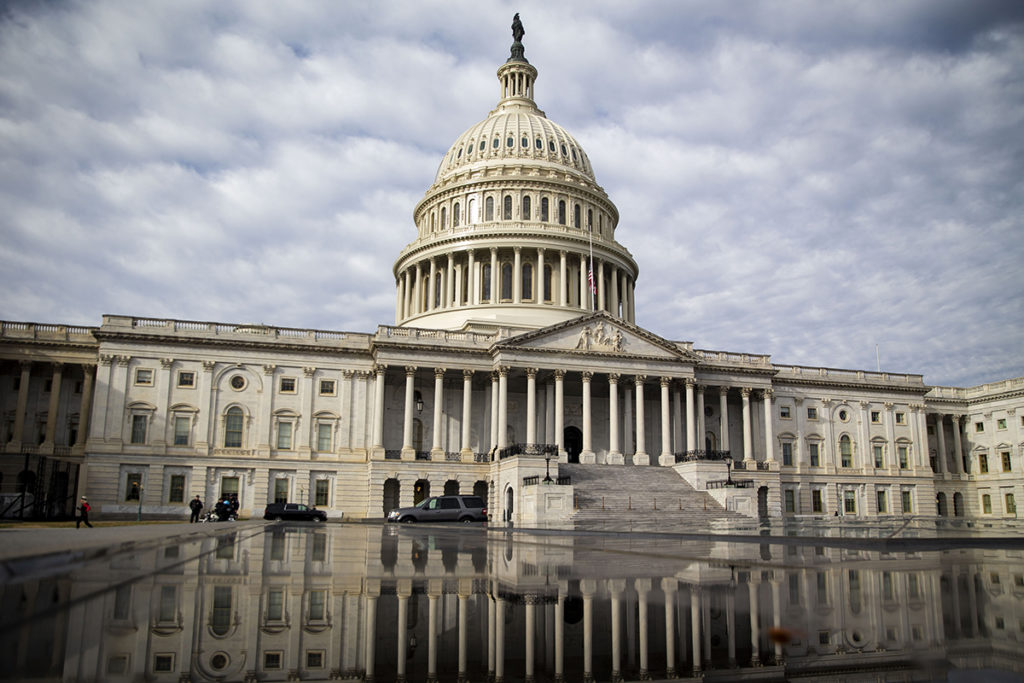
Updated: March 27, 2020
The $2 trillion coronavirus relief bill passed by Congress will bring help to electric cooperatives and their consumer-members by offering millions in aid for families struggling to pay their utility bills and billions in grants for small businesses.
At the same time, the U.S. Department of Agriculture took action to provide greater flexibility and certainty for co-ops that rely on the Rural Utilities Service for loans and other financial assistance.
NRECA urged Congress and the Trump administration to include aid for co-ops as part of federal relief efforts aimed at boosting the struggling U.S. economy in the midst of the COVID-19 pandemic. CEO Jim Matheson wrote letters to congressional leaders and Agriculture Secretary Sonny Perdue asking for specific measures to help co-ops and their consumer-members.
The Senate passed the Coronavirus Aid, Relief and Economic Security (CARES) Act on Wednesday, and the House approved it Friday by voice vote. Congress is expected to pass more relief legislation in the weeks ahead.
Here are some of the key provisions for co-ops in the nearly 900-page bill:
- Adds $900 million for the Low-Income Home Energy Assistance Program, which helps low-income and moderate-income consumers pay their utility bills.
- Adds $100 million for grants through the USDA RUS ReConnect broadband program and $25 million for the RUS Distance Learning and Telemedicine grant program to expand investments in telemedicine and distance-learning services in rural areas.
- Adds $45 billion for the disaster relief fund administered by the Federal Emergency Management Agency. Co-ops often rely on these funds to restore power after storms and other emergencies.
- Creates a $349 billion Paycheck Protection Program that provides federal government loan forgiveness (under Small Business Administration Section 7(a) loans) for small businesses to pay up to eight weeks of basic expenses, including electric, telephone and internet bills.
- Creates a $10 billion SBA program to provide grants of up to $10,000 to small businesses to pay their workers and pay rent or mortgages, among other uses. Co-ops with fewer than 500 employees may be eligible for this grant program if they plan to apply for SBA Economic Injury Disaster Loans. Certain restrictions on those loans have now been waived.
The legislation does not include a federal moratorium on disconnecting consumers who fail to pay their utility bills. Some states have already imposed moratoriums, while others have asked utilities to voluntarily suspend disconnections during the coronavirus emergency. Many co-ops have already stopped disconnections and deferred bill payments for members who are experiencing financial hardships.
Earlier in March, President Trump signed legislation that would expand emergency family and medical leave and paid sick leave for co-ops and other small businesses with fewer than 500 employees. The CARES Act clarifies payment limitations for those programs. It also waives the 10% early distribution penalty for employees who withdraw up to $100,000 from their 401(k) retirement savings or from their Individual Retirement Accounts.
The USDA also announced this week that it is providing relief for borrowers through its RUS program. The department extended for 60 days the deadline for telecommunications and electric program borrowers and grantees to submit their annual audits, which normally are due by April 30. It also waived borrower covenant requirements for loan agreement financial ratios for the entire 2020 calendar year.
The agency is waiving all financial reporting requirements associated with existing RUS loan and grant covenants through June 30. USDA also will help electric program borrowers gain access to funds more quickly at current low interest rates by considering extensions of loan terms on a case-by-case basis.
“For over 80 years, the U.S. Department of Agriculture and America’s electric cooperatives have partnered—not just to keep the lights on—but to promote the overall well-being of all rural America,” Matheson wrote to Perdue. “In this extraordinary and challenging time, when those communities are threatened, our partnership is more important than ever.”
Erin Kelly is a staff writer at NRECA.
Read more on the electric co-op response to the COVID-19 Pandemic
See NRECA’s COVID-19 hub on cooperative.com for key resources for co-ops, including guidance on business continuity planning and communication, as well as event schedule changes.